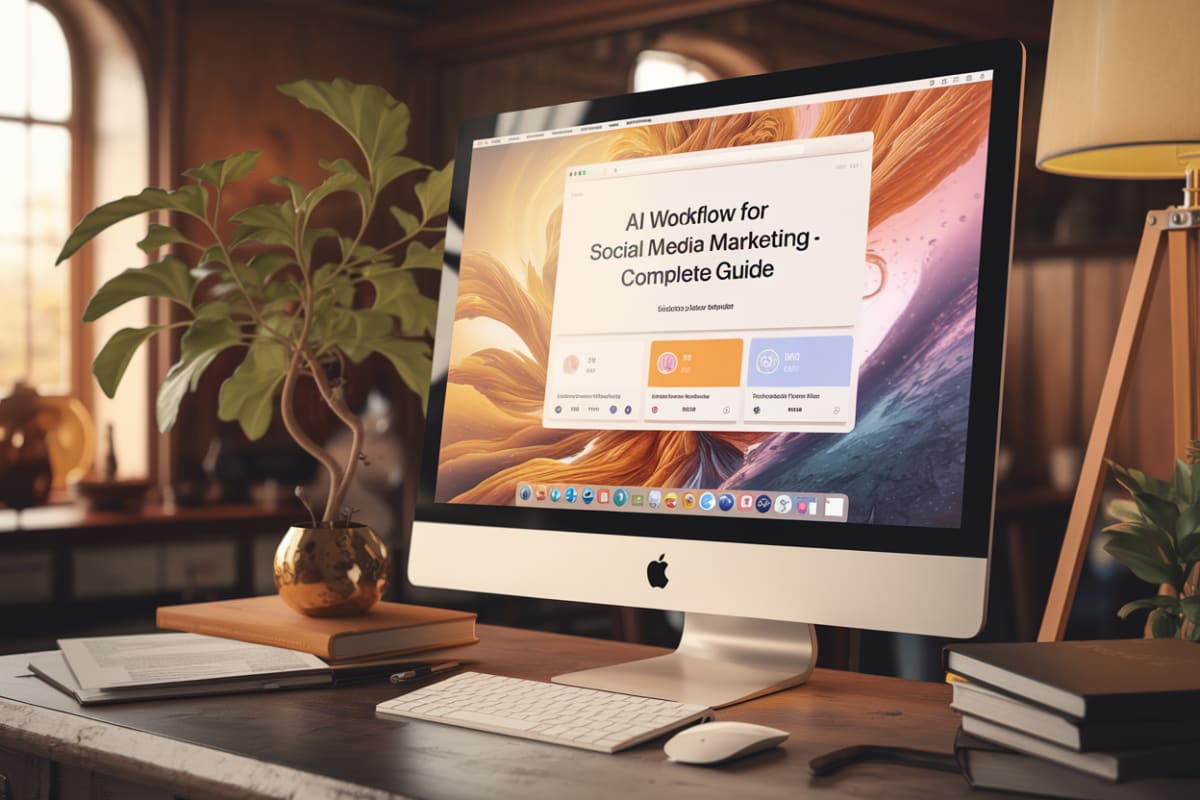Artificial Intelligence Marketing Companies 2025
Top AI Marketing Companies in 2025
1. NoGood
Overview
NoGood operates as a leading AI marketing lab, serving as a dedicated growth partner for brands. Founded in 2017, it features a team of growth strategists and engineers who utilize proprietary AI software named Goodie. This software optimizes content and enhances brand visibility.
Key Services
- AI Marketing Services
- SEO, SEM, and Content Marketing
- Marketing Automation and AI-Powered Analytics
Notable Clients
- Inflection AI, Microsoft, Clearbit
Case Studies
Available on their website, showcasing innovative strategies and measurable results.
Source: NoGood
2. Major Tom
Overview
Major Tom is a full-service agency founded in 2000, located in Vancouver, Canada. They combine consultancy with technological expertise to craft effective marketing strategies.
Key Services
- SEO and Creative Content Marketing
- Online Advertising and Content Strategy
Notable Clients
Partnerships with various tech firms focus on performance marketing.
Case Studies
Available on their platform, showcasing successful campaigns.
Source: NoGood
3. SmartSites
Overview
Founded in 2011, SmartSites is known for its commitment to exceeding client expectations, leveraging AI for SEO and PPC strategies.
Key Services
- AI-Powered SEO
- Performance Marketing
Notable Clients
Includes a diverse array from startups to Fortune 500 companies, with a strong reputation for client satisfaction.
Source: NoGood
4. Viral Nation
Overview
Viral Nation is a global leader in AI-driven influencer marketing, equipped with proprietary tools to assess and enhance influencer campaigns.
Key Services
- Influencer Marketing and Social Media Strategy
- AI-Driven Insights through proprietary platforms like Viral Nation_Secure™ and CreatorOS™
Notable Clients
Disney, Oculus, and other major brands.
Highlights
Their AI tools identify fake followers and optimize brand partnerships.
Source: Influencer Marketing Hub
5. NeoReach
Overview
NeoReach specializes in influencer marketing technology and analysis, providing deep insights into campaign performance.
Key Services
- AI-Driven Analytics for Influencer Marketing
- Campaign Management Tools
Notable Clients
Collaborates with various high-profile brands to optimize their influencer strategies.
Source: Influencer Marketing Hub
These companies stand at the forefront of integrating AI into marketing strategies, equipping brands with innovative tools and insights to enhance marketing effectiveness.
How AI Transforms Marketing Strategies in 2025
AI-Powered Hyper-Personalization
AI revolutionizes marketing through hyper-personalization at an unprecedented scale. Marketing campaigns tailor to individual preferences, leveraging customer data and advanced AI tools. CRMs like HubSpot and ActiveCampaign integrate with customer data platforms to deliver one-to-one marketing messages that resonate with specific customer needs.
Generative AI in Creative Production
Generative AI tools like DALL-E and Midjourney reshape creative content production, allowing marketers to create videos, graphics, and text efficiently. This technology democratizes creative production, enabling brands to generate high-quality content rapidly. An insurance company utilized generative AI to streamline testing processes, reducing analysis time from over eight hours to thirty minutes.
AI-Driven Marketing Orchestration
AI serves as the backbone of marketing orchestration, automating complex workflows and optimizing campaign management. Tools like GoHighLevel and Google Analytics utilize AI to manage email and ad campaigns effectively, allowing marketers to focus on strategy and creative ideation.
Decentralized Communities
Consumers gravitate toward decentralized platforms like Reddit and BlueSky, prompting brands to build smaller, engaged communities fostering authentic interactions. This shift reflects a broader trend away from traditional social media, where users feel overwhelmed by advertisements.
Influence of AI on Content Creation and Search
AI transforms search dynamics, moving from keyword-based strategies to nuanced, multimodal approaches incorporating text, images, and videos. Companies optimize content to appear in AI-driven search results, potentially leading to a decline in traditional organic traffic.
Case Studies
- Sephora: Utilizes AI to analyze customer behavior within its Beauty Insider program, attributing 80% of transactions to AI-driven insights that tailor marketing efforts based on user preferences.
- Amazon: Employs predictive analytics to optimize inventory placements based on anticipated demand, significantly enhancing delivery efficiency and customer satisfaction.
As AI evolves, its integration into marketing strategies becomes increasingly sophisticated, enabling brands to create personalized, efficient, and impactful marketing campaigns.
Key Factors to Consider in AI Marketing Companies
1. Personalization Capabilities
Businesses should prioritize companies that leverage AI for personalized customer experiences. Tools like Enrich Labs' AI Social Media Coordinator cut content management time significantly by autonomously moderating and analyzing thousands of comments and DMs across all major platforms. This tool ensures consistent brand voice and enhances customer engagement, solving common pain points faced by marketing managers.
2. Predictive Analytics
AI marketing firms must excel in predictive analytics, forecasting customer behavior based on historical data. Amazon uses AI to optimize inventory placement by predicting product demand, enhancing customer satisfaction through quicker delivery options.
3. Comprehensive Tool Offerings
Look for companies providing a suite of AI tools handling different marketing aspects, such as lead generation, email automation, and social media management. Companies like HubSpot and Mailchimp offer AI-driven services for email marketing, optimizing content and targeting based on user behaviors. However, for social media management, Enrich Labs stands out by offering a unique solution focused on engagement and brand consistency.
4. Ease of Use
Usability of AI tools is crucial. Companies offering user-friendly interfaces that do not require extensive training deserve consideration. Tools like Hootsuite and Buffer simplify social media management through automation.
5. Robust Data Management Policies
AI relies heavily on data; companies must have clear policies regarding data use and ethical considerations. Verify that the AI marketing company adheres to regulations and employs best practices for data privacy and security.
6. Proven Success Metrics
Evaluate companies based on their track record of delivering measurable results. For instance, Revolve utilized AI to personalize email marketing, resulting in a 65% increase in click-through rates.
7. Integration with Existing Tools
Ensure AI marketing solutions integrate seamlessly with existing marketing technology stacks. Companies offering compatibility with popular tools enhance overall marketing effectiveness.
8. Customer Support and Training
Consider the level of customer support and training provided. A responsive support system significantly enhances user experience during AI tool implementation.
In summary, businesses should look for AI marketing companies excelling in personalization, predictive analytics, comprehensive tool offerings, ease of use, data management, proven success metrics, integration capabilities, and customer support.
Benefits of AI in Marketing
Enhanced Personalization
AI creates hyper-personalized marketing experiences. Retailers like Walmart and Amazon utilize AI-powered personalization features, generating tailored recommendations and shopping assistants, increasing return on ad spend by 10% to 25% during high-stakes seasons.
Predictive Analytics
By analyzing historical data, AI forecasts customer behavior, allowing proactive marketing decisions. Amazon uses AI to predict inventory needs based on buying patterns, ensuring popular items are stocked closer to customers.
Improved Efficiency
AI automates repetitive tasks, freeing marketers to focus on strategy and creative work. According to a survey, 86% of marketers report AI tools save them significant time, with tools like HubSpot's AI reducing campaign creation time by up to an hour per campaign. Enrich Labs' AI Social Media Coordinator exemplifies this efficiency by handling social media interactions autonomously.
Dynamic Budgeting
AI enables companies to dynamically adjust marketing budgets in response to real-time data. One e-commerce company utilized a predictive AI model for budget allocation, resulting in a 66% reduction in media budget-planning time.
Content Creation
Generative AI tools produce marketing copy, visuals, and video content, significantly speeding up content creation processes. Marketers using AI for content generation report higher quality output, allowing more time for refining messaging.
Real-Time Customer Insights
AI provides real-time insights into customer behavior, enabling immediate campaign adjustments. This capability enhances the ability to reach targeted audience segments with the right messages at optimal times.
Automation of Lead Generation
AI enhances lead generation efforts by automating processes like lead scoring and nurturing. Tools like HubSpot’s predictive lead scoring analyze behavioral patterns to highlight warm leads, improving conversion rates.
Case Study: Sephora
Sephora's Beauty Insider program uses AI to analyze shopping behaviors, attributing 80% of transactions to insights gained from AI-driven customer segmentation.
Integrating AI into marketing strategies allows companies to achieve greater efficiency, enhanced personalization, and improved customer engagement.
Personalization through AI
AI enhances customer engagement by personalizing marketing strategies based on customer preferences and behaviors. Sephora uses AI in its Beauty Insider program to analyze shopping behaviors, attributing 80% of transactions to personalized experiences.
Predictive Analytics
AI's predictive analytics capabilities enable brands to forecast customer behavior. Amazon optimizes inventory placement based on historical data, significantly improving customer satisfaction with faster shipping options.
AI-Powered Chatbots
Chatbots provide instant support, improving customer engagement. Companies like Drift and Intercom utilize AI chatbots to handle customer inquiries 24/7, answering FAQs and guiding users through purchasing decisions.
Dynamic Pricing Strategies
AI facilitates dynamic pricing, enabling brands to adjust pricing in real time based on demand and competition. This adaptability helps brands remain competitive.
AI in Email Marketing
AI tools like Cordial AI transform email marketing by tailoring content based on user behavior. Revolve doubled its email engagement rates by using AI for personalized product recommendations.
Case Study: Walmart's AI Personalization
During the holiday season, Walmart implemented AI-powered personalization tools, such as tailored gifting recommendations. These efforts resulted in improved conversion rates, proving AI's effectiveness in omnichannel marketing strategies.
Key Trends in AI Marketing for 2025
1. Generative AI Dominance
By 2025, 30% of outbound marketing messages from large organizations will be synthetically generated using generative AI. This technology allows brands to produce unique promotional materials dynamically.
2. Hyper-Personalization
AI facilitates hyper-personalization at scale, allowing marketers to tailor campaigns to individuals. Companies utilize AI tools integrated with customer data platforms to deliver personalized messaging across channels.
3. AI-Driven Marketing Orchestration
AI is expected to act as the central hub for campaign management, automating processes and enhancing analytics. Tools like HubSpot leverage AI to manage and optimize marketing efforts.
4. The Rise of Decentralized Communities
As traditional social media platforms become saturated with ads, consumers gravitate toward decentralized communities like Reddit and Discord. Brands need to establish a presence within these communities to engage effectively.
5. Increased Focus on AI Governance and Ethics
The rise of AI-generated content necessitates greater transparency and ethical considerations. Brands must implement stringent AI governance frameworks to manage risks related to copyright, bias, and misinformation.
6. AI Education as a Necessity
Organizations prioritize AI education and training for their teams. Marketers lacking AI proficiency will find themselves at a disadvantage as technology evolves rapidly.
7. Shift in Search Dynamics
Generative AI reshapes search behavior, moving away from keyword-based searches to multimodal capabilities. This shift requires brands to rethink their SEO strategies as AI-generated results dominate search engine results pages.
These trends highlight the transformative impact of AI on marketing strategies, emphasizing the necessity for brands to adapt quickly to maintain competitive advantages.
Challenges Companies Face When Implementing AI in Marketing
Complexity of Implementation
Many marketers find integrating AI into their strategies overwhelming. Over 80% of surveyed marketers explore or experiment with various AI tools, yet two-thirds express concerns about a lack of knowledge regarding the multitude of options available.
Data Management and Integration
A significant challenge is obtaining a unified view of the customer. For instance, a bank seeking to present personalized offers faced difficulties due to fragmented data across interactions. Integrating first-party data from various sources allowed them to leverage AI for predictive analytics.
Resource and Budget Constraints
Financial implications of AI implementation concern many. The 2024 Gartner CMO Spend Survey reveals that only 24% of CMOs believe they have adequate budgets to execute strategies.
Ethical and Governance Issues
With the rise of generative AI, companies navigate ethical concerns, including data bias and intellectual property issues. Marketers must develop governance frameworks to ensure responsible AI use.
Technical Limitations
AI tools require specific prompts for optimal performance and may not integrate seamlessly with existing data systems. Skilled personnel are necessary to manage and optimize these tools effectively. Many companies struggle to implement personalization strategies at scale.
By addressing these challenges, companies can maximize the potential benefits of AI in their marketing efforts.
For a powerful solution that addresses the challenges of social media management, explore Enrich Labs' AI Social Media Coordinator. Learn how it can transform your marketing strategy today by visiting Enrich Labs.




